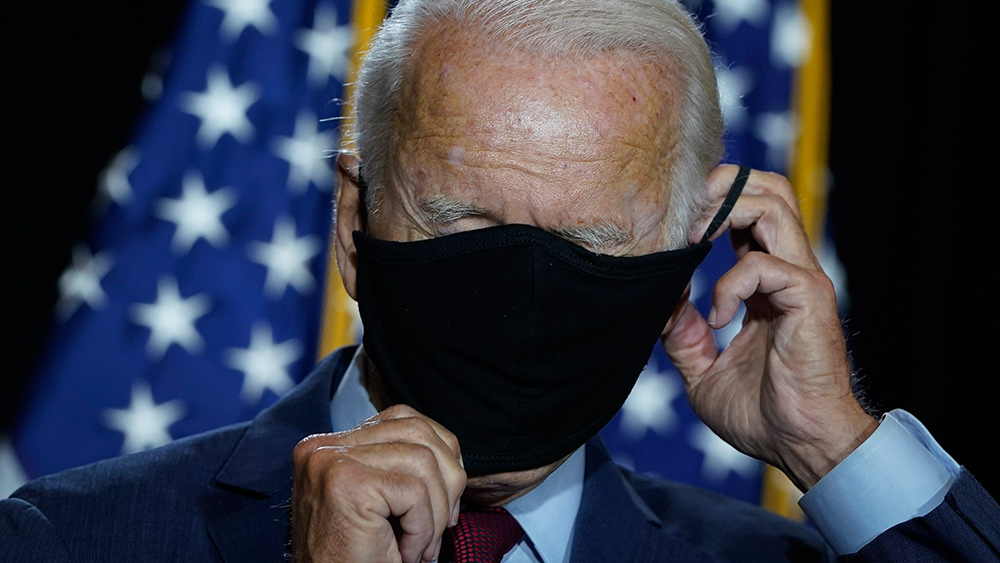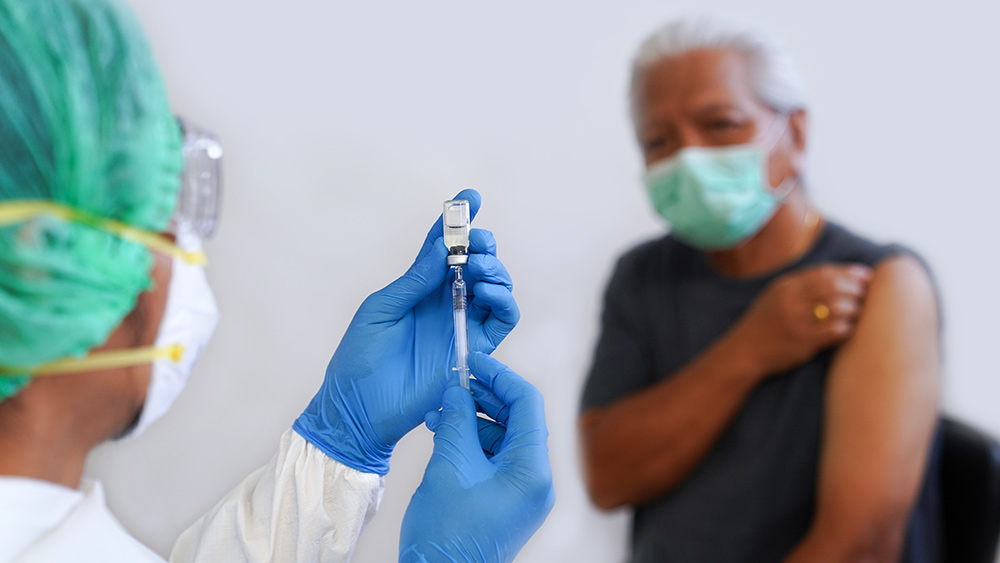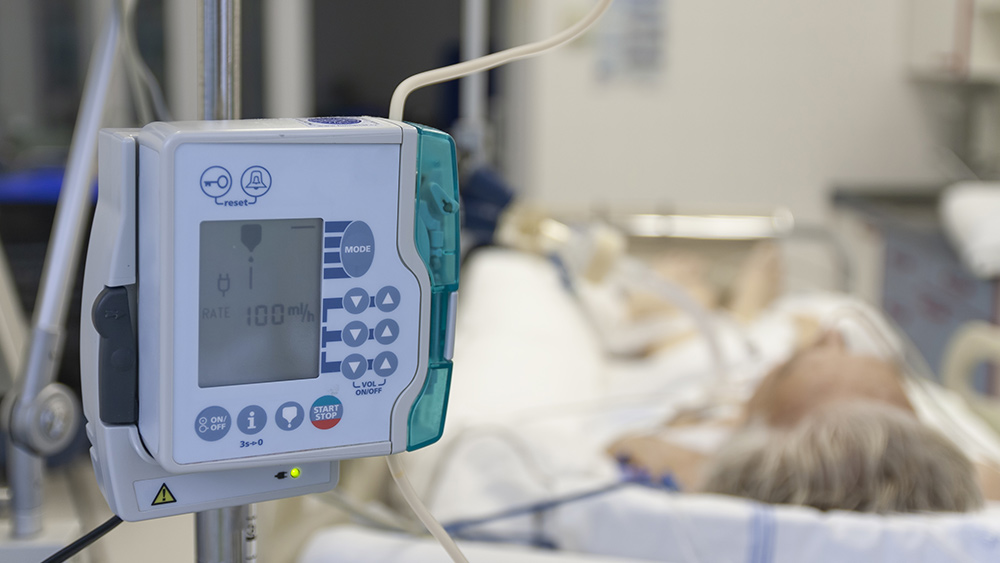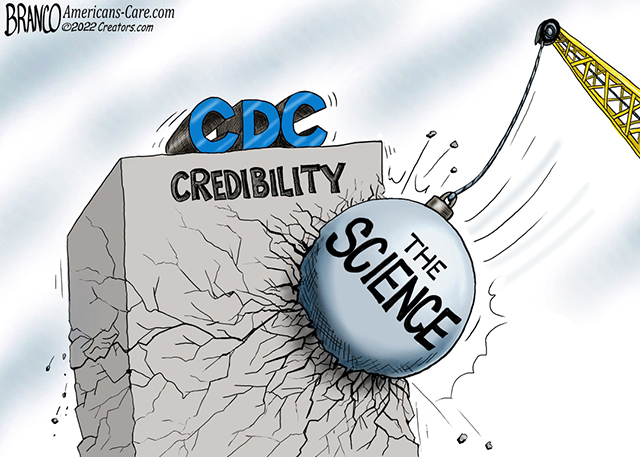CDC report admits mask-wearing provides no real protection against Covid
03/10/2021 / By Ethan Huff

On March 5, the United States Centers for Disease Control and Prevention (CDC) published a report admitting that face masks do not provide protection against the Wuhan coronavirus (Covid-19), and potentially worsen infection risk.
Authored by more than a dozen medical doctors, PhD researchers, and attorneys, the research found that wearing a mask or not wearing a mask produces roughly the same outcome in terms of the number of “cases” and deaths blamed on the Chinese virus.
Between March 1 and Dec. 31 of last year, 2,313 of America’s 3,142 counties were under a statewide mask mandate. County-by-county data shows a statistically insignificant difference in health outcomes between masked versus unmasked counties.
“[A]ccording to the federal government agency that is responsible for managing the COVID-1984 pandemic, the difference between mask mandates and no mask mandate is literally just a 1.32% difference,” writes Simon Black for Sovereign Man.
“And bear in mind, it’s entirely possible that the real figure is even lower than that, given all the questionable COVID statistics.”
Considering seasonal influenza vanished in 2020-2021, down 56 million compared to the season prior, the data would suggest that masked areas are actually more prone to disease spread.
“[I]s it possible that maybe, just maybe, at least some influenza cases have been misdiagnosed as COVID?” asks Black. “If that’s the case, then the real impact of masks on COVID growth rates is potentially much lower than 1.32%.”

The CDC itself would appear to recognize this, admitting towards the end of the report that mask mandates merely “have the potential” – but not the science – “to slow the spread of COVID-19.”
More of the latest news about Covid-1984 can be found at Pandemic.news.
Mask-wearing is a death sentence for humanity
In “legalese,” anything has the potential to do anything, as the word potential is an all-encompassing term with subjective intent. Masks have never been, and never will be, proven to provide any actual protection against the Wuhan flu.
The fact that the World Health Organization (WHO) took the word potential and made it into definitive policy shows how unscientific these governing bodies truly are when it comes to how they determine public health guidelines.
“It makes [us] wonder whether Google and Facebook are gearing up to censor this report, given they have self-appointed themselves as the Ministry of Truth,” Black jokes.
Even the corrupt CDC, a private corporation, was unable to twist the data in such a way as to even make it seem as though masks are anything other than a harm-inducing placebo. The agency was forced to admit that masks are little more than snake oil, in other words.
As for the negative impacts of mask-wearing on society, an earlier study published in the journal Nature found that Americans who wear masks are much more likely to engage in riskier activities that could harm them.
According to the “experts,” mask-wearers on average spend 11-24 fewer minutes at home than non-mask-wearers. Mask-wearers are more prone to go to a restaurant or some other “high-risk location.”
Not only that, but chronic mask-wearing has led to a spike in rates of mental health issues and suicide. Depression, despair, and hopelessness are hallmarks of mandatory mask policies, as forcing people to wrap their faces in Chinese plastic is abnormal, anti-social, and destructive.
In Japan, the suicide rate among children skyrocketed by 49 percent after mask policies were implemented. The U.S. government’s Substance Abuse and Mental Health Service (SAMHSA) also reported an 890 percent increase in call volume to its nationwide suicide hotline last April.
“There can be no rational discourse on the topic,” Black laments about discussing these politically incorrect data points. “You’re not allowed to ask any questions or express any intellectual dissent, otherwise you’ll be denounced as a conspiracy theorist.”
Sources for this article include:
Submit a correction >>
Tagged Under:
CDC, Centers for Disease Control and Prevention, Dangerous, face mask, ineffective, infections, mask, masks, outbreak, pandemic, report
This article may contain statements that reflect the opinion of the author





















